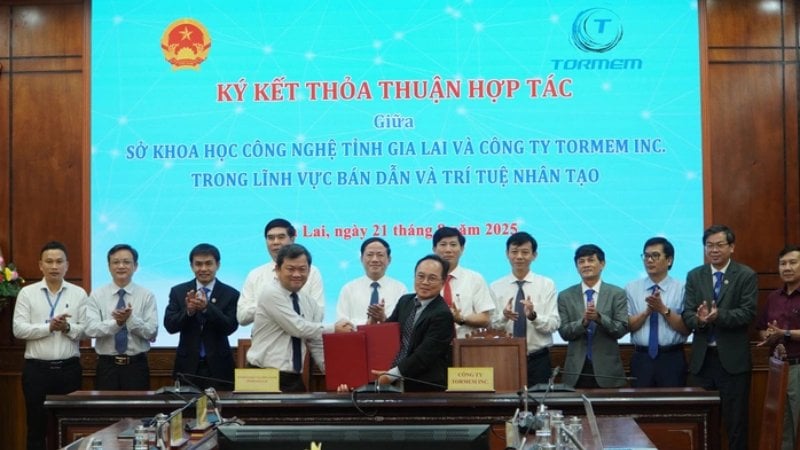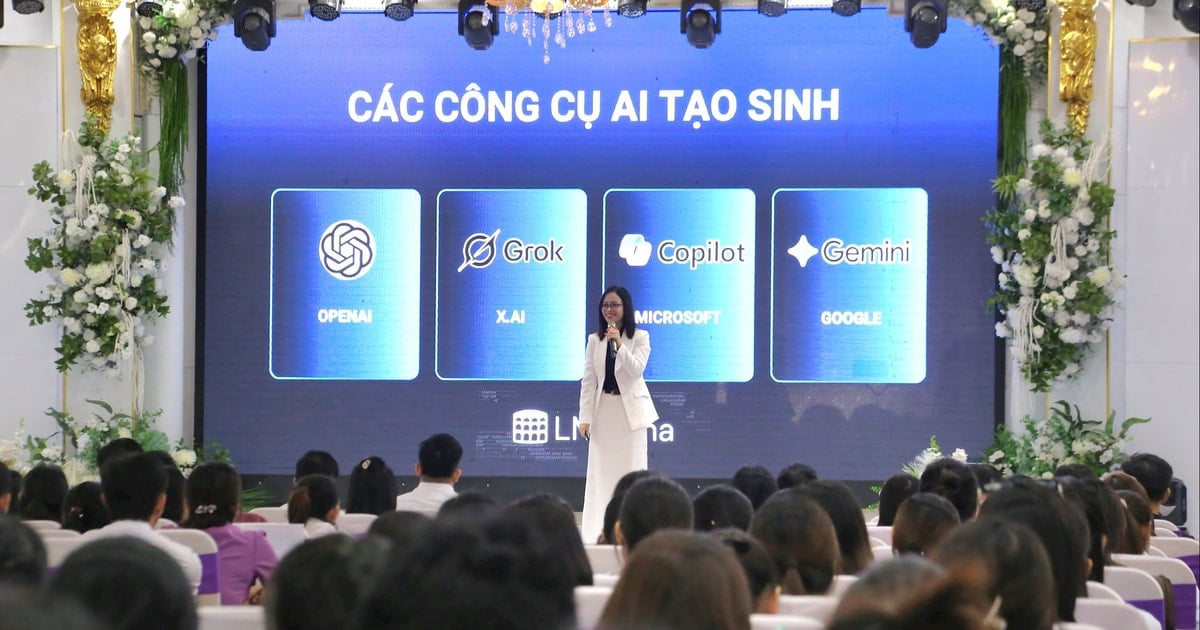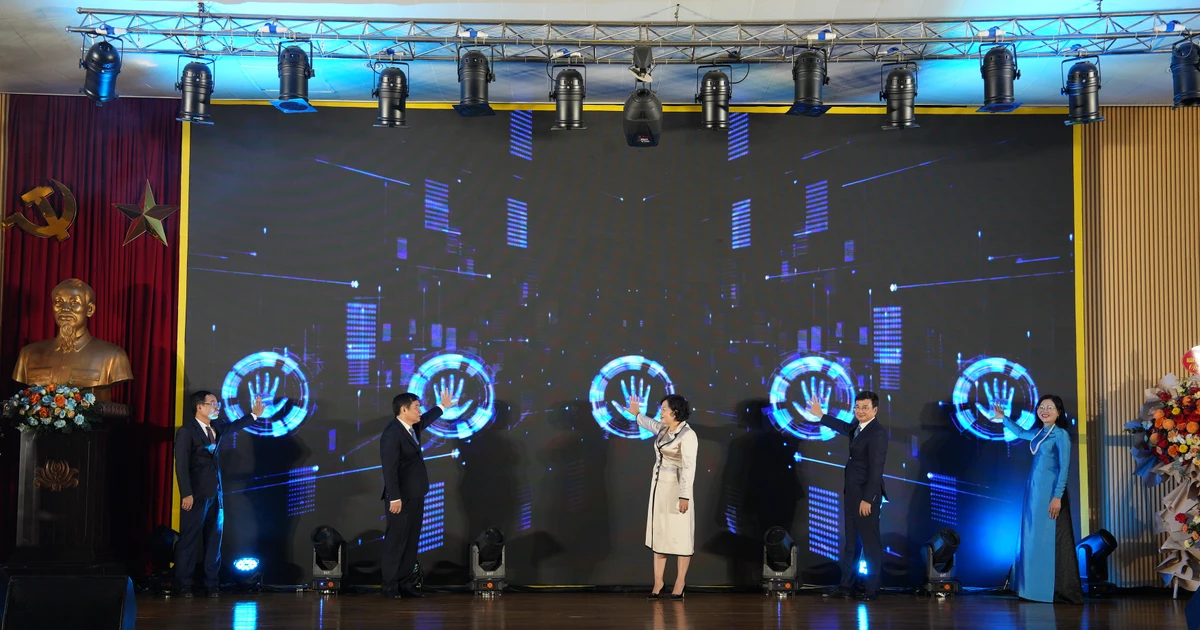The wave of artificial intelligence (AI) is becoming an “explosion”, creating a source of wealth unprecedented in modern history.
Part of the impetus comes from huge funding rounds in 2025 from tech giants like Anthropic, Safe Superintelligence, OpenAI, Anysphere, and a host of emerging AI startups.
Many new billionaires have emerged and as these companies enter the initial public offering (IPO) stage, the huge amount of assets currently in private equity will become liquid, opening up a golden opportunity for the asset management industry.
According to CB Insights, there are currently 498 AI “unicorns” — private companies valued at $1 billion or more — with a combined value of about $2.7 trillion, including 100 new companies founded since 2023. In addition, more than 1,300 other AI startups have valuations above $100 million.
Along with the surge in stock prices of Nvidia, Meta, Microsoft, and data infrastructure companies, the huge compensation for AI engineers is creating personal wealth on a scale that far exceeds the previous two technology waves.
“Looking back over the past 100 years, we have never seen wealth creation on the scale and speed that we are seeing today,” said Andrew McAfee, a principal investigator at MIT.
The New Generation of AI Billionaires
In March 2025, Bloomberg estimated that the world’s four largest private AI companies had created at least 15 billionaires with a combined net worth of $38 billion. Since then, more than a dozen new “unicorns” have emerged.
Mira Murati, former CTO of OpenAI, left the company in September 2024 and founded Thinking Machines Lab in February 2025. By July 2025, the startup had raised $2 billion, marking the largest funding round in history for a non-IPO company, valuing the company at $12 billion.
Anthropic AI is in talks to raise $5 billion at a valuation of $170 billion, nearly triple what it was in March 2025. If the deal goes through, CEO Dario Amodei and six of Anthropic AI’s co-founders could join the ranks of billionaires.
Similarly, Anysphere was valued at $9.9 billion in June 2025 and just a few weeks later received an offer to raise its valuation to $18-20 billion, paving the way for 25-year-old CEO Michael Truell to become a young billionaire.
Unlike the dot-com bubble of the late 1990s, when many technology companies rushed to go public, AI startups are now staying private longer thanks to abundant funding from venture capital funds, sovereign wealth funds, and technology investors.
However, the rapidly developing secondary market is helping shareholders realize profits early through share sales, takeover offers or share mortgages.
Deals and liquidity waves
OpenAI is in talks to sell secondary shares to employees at a valuation of $500 billion, following a March 2025 funding round that valued it at $300 billion.
Dozens of other private companies have also been acquired or IPO’d, creating massive liquidity. Meta invested $14.3 billion in Scale AI, bringing founder Alexandr Wang on board to join the group’s AI development team.
CB Insights counts 73 liquidity events – including M&A, IPO, merger or majority acquisition – in the AI sector since 2023.
“Epicenter” in Silicon Valley
The AI wave is currently concentrated in the San Francisco Bay Area, reminiscent of the dot-com bubble. In 2024, Silicon Valley companies raised more than $35 billion in venture capital.
San Francisco now has 82 billionaires, far surpassing New York's 66. The number of millionaires here has doubled in 10 years, compared to New York's 45% increase.
San Francisco real estate prices above $20 million hit a record last year. Rents, home values, and market demand — largely driven by AI — have reversed the market’s doldrums of the past few years.
“It’s amazing how geographically concentrated the AI wave is,” said McAfee. “For the past 25 years, I’ve been hearing that Silicon Valley is over, but the reality is that it’s still the center of technological innovation.”
Opportunities and challenges for the asset management industry
Experts say that as more private AI companies IPO, this asset class will become more liquid, creating a huge opportunity for asset management firms. However, the challenge is that much of the value is still “locked” in unlisted companies.
According to Simon Krinsky, CEO of Pathstone, emerging AI entrepreneurs may follow the path of dot-com billionaires: initially focusing on reinvesting in the technology sector, then turning to professional asset management services when they see the risks of over-concentration.
With their innovative nature, AI billionaires could continue to reshape the wealth management industry — even using AI to replace many traditional functions.
However, in the long term, they still need personalized wealth management services, from tax advice, inheritance planning to sustainable investment strategies.
Source: https://www.vietnamplus.vn/ai-dang-tao-ra-hang-loat-ty-phu-moi-voi-toc-do-ky-luc-post1054908.vnp





![[Photo] Prime Minister Pham Minh Chinh chairs the conference to review the 2024-2025 school year and deploy tasks for the 2025-2026 school year.](https://vstatic.vietnam.vn/vietnam/resource/IMAGE/2025/8/22/2ca5ed79ce6a46a1ac7706a42cefafae)


![[Photo] President Luong Cuong receives delegation of the Youth Committee of the Liberal Democratic Party of Japan](https://vstatic.vietnam.vn/vietnam/resource/IMAGE/2025/8/22/2632d7f5cf4f4a8e90ce5f5e1989194a)





























































































Comment (0)